Take up the White Man’s Burden, send for the best ye breed,
Go bind your sons to exile, to serve your captives need – new-caught, sullen peoples, Half-devil and half-child…
Take up the White Man’s burden, the savage wars of peace.— Rudyard Kipling (1899)
The 2011 UK census recorded that Asian groups together numbered roughly 7% of Britain’s population, Black people 3% and mixed-race 2%, making a BAME (Black, Asian and Minority Ethnic) total of 12%. In various combinations they are the decedents of people who’ve once been owned, colonised, lost their lands, original culture, languages etc, and in modern societies have little or no collective institutional or financial power, to combat their ghettoisation in the lower reaches the UK class system. The reason they are here, subject to western structural racism, is because the Tony Blairs of the 18th and 19th C slaughtered and enslaved their ancestors. Throughout this period of the slavery and racist-imperialist gravy-train – and as Rudyard Kipling’s famous sentiments demonstrate – this oppression was represented as doing indigenous peoples some sort of service or favour.
Elites abandoning the post-war decolonisation consensus in our era, returned to this racist faked foreign policy benevolence, force-feeding the public the narrative, that from intrusive Iraq, Afghanistan wars and elsewhere, ‘America is spreading democracy’. The extent to which America is itself a democracy is up for debate, but this marketing is simply a rehash, of the 19th C ‘Onward march of western civilisation’ expansionist ideology. When asked, Ghandi is reputed to have mocked the notion of western civilisation saying ‘I think it would be a good idea’.
Modern racist-imperialists – prominently Blair, his former ministers and his media enablers – blatantly reuse tropes of the same racist propaganda. As the US project in Afghanistan grinds to a halt and tragedy overtakes the country, this propaganda practice has again gone into overdrive. The BBC and most of the corporate media continue to re-spin the years of western domination of Afghanistan as about, educating its women and children. In light of the new US withdrawal position, this is not just last year’s Orwell-like Ministry of Truth-style propaganda, but also a racist narrative that’s again hundreds of years old. During the period of the 18th/19th C imperialist gravy-train, western conquest was similarly represented as ‘civilising the primitive savage’ and justified by narratives of supposedly ‘teaching the ‘w*gs/ darkies Christianity’. Obscuring the slurs of implied ethnic primitivism from modern media presentation, hardly changes the truth of the material and ideological dynamic.
The ‘educating Afghan women and children’ narrative would, as public discourse, be treated with the shocked incredulity it deserves, were indigenous Afghan casualties, from western conquest and occupation, not as a editorial agenda frequently media played down, effaced and censored from representation, No matter how many Afghan mothers protest the western killing of their children, this phenomenon has been mainly absented from prominence in news agendas.
When the UK Times unusually broke ranks reporting a 2009 US atrocity, it was left to campaigning scrutiny site Media Lens to follow up in 2010, writing… “American-led troops dragged Afghan children from their beds and shot them during a night raid on December 27 last year, leaving ten people dead. Afghan government investigators said that eight of the dead were schoolchildren, and that some of them had been handcuffed before being killed.”
The extent of the problem meant in 2011 after a further nine children died in a NATO air strike, even President Karzai – an ambitious local politician in effect, simply a western satrap – was forced against potential self-interest, to embarrass General Petraeus publicly stating “On behalf of the people of Afghanistan I want you to stop the killings of civilians” and the subsequent apology was “not enough”. The France 24 news site covering Karzai’s statement, also referred to the similar indigenous 65 non-combatants killed during operations in Kunar province’s Ghaziabad district; six civilians killed in neighbouring Nangarhar province, and the hundreds who took to the streets of Kabul protesting the killing of children, all by western forces.
The brutal Taliban shooting of Malala Yousafzai was used as a propaganda boost to the ‘advancing civilisation’ narrative by western media and political elites. But it is perhaps significant that the Taliban who are hardly public relations sophisticates, felt they need only appeal to the lived experience of indigenous people in Afghanistan and the bordering area of Pakistan – in a 2013 response to the surviving Malala, publicly questioning…
if you were shot but [by] Americans in a drone attack, would world have ever heard updates on your medical status? Would you be called ‘daughter of the nation’? Would the media make a fuss about you? Would General Kiyani have come to visit you and would the world media be constantly reporting on you?… Would a Malala day be announced?… More than 300 innocent women and children have been killed in drones attacks but who cares… (numbers unverified).
Even career politician former President Karzai was similarly in line with grassroots experiences, after this year’s withdrawal announcement, telling Russia’s RT (UK) “The US has lost the war in Afghanistan…years ago, when it bombed Afghan homes”. And that this western violence had recruited for the indigenous Afghan Taliban and enabled them. “Things went wrong. They (Taliban) began to re-emerge and the part of the population went with them.”
Given that women and their children are most often the first victims of war, there has never been a significant grassroots pro-imperialism feminist movement. In fact, in contrast to the attempts by pro-war neoliberals to camouflage their atrocities in the clothing of women’s concerns, a generational spanning tradition of anti-war feminists exists, including figures like Jane Adams, Ruth Adler, Vera Brittain, Betty Reardon, and Sylvia Pankhurst who opposed the Italian conquest of Ethiopia. Current media spin about supposedly helping women in Afghanistan also deliberately side-lines significant figures like CodePink’s Medea Benjamin who recently commented…“A shout out to all who joined CODEPINK and other peace groups to oppose the invasion of Afghanistan. From Bush to Obama, we called for our troops to come home. Now we have to stop the military-industrial complex from dragging us into new wars.”
Another issue is can altruism – particularly with regard to educating indigenous women and children – be remotely believed as a motivation for those responsible for the West’s conquest of Afghanistan? Education has been comodified in George W. Bush’s America, and resulting student debt is at record levels. Similarly, in contradiction to previous UK Labour Party traditions, the governments comprising PM Tony Blair, Chancellor Gordon Brown and their cabinets abolished the mandatory student support grant and even introduced fees for what had previously been free education. Consequently, the marketing of the state education policies of Blair et al were frequently parodied by Party grassroots supporters as instead ‘Exploitation, Exploitation, Exploitation’. Blair’s New Labour cuts to lone parent benefits – primarily harming single mothers and their children – is frequently cited as the moment Labour’s traditional support realised they had been betrayed by neoliberal entryism. Would Britain’s neoliberal political elite attacking domestic lone mothers and working-class opportunities, really expend financial resources just to help Afghan women and their children?
Historian David Stannard has documented 100 million dead indigenous people of the Americas as victims of the largest holocaust in human history, occurring as a result of the overall conquest of the continent. For its part the US currently has a population of 331+ million people. There are only 6+ million Native Americans left as part of this population, whose life chances are largely limited by the constraints of the Reservation system. Native Americans are practically un-findable, excluded, in most US cities, and invisible on film and TV. If President George W Bush wanted to help indigenous people, he could have started at home.
If Bush simply wanted to ‘do good’, given former manufacturing city powerhouses like Detroit are wastelands, suffering from the export of US manufacturing jobs to global sweatshop economies, he could have fought poverty and the resulting homelessness crisis. Perhaps most significantly he could have tackled the economic underpinnings of the ongoing post-19th C Black human rights crisis. Are then we really supposed to believe his US conquest of Afghanistan was about some sort of ‘white man’s burden’ altruism?
In contradiction to the western white man’s burden narrative, both Bush and Blair presided over torture programs victimising Muslim people-of-colour. One victim of the UK Blair torture regime – Fatima Boudchar – was actually pregnant when kidnapped along with her husband for rendition. In Afghanistan torture was carried out at Bagram which corporate news outlets largely misrepresent as simply an airbase. Most of the news outlets now pretending to be outraged by human rights concerns under the new Taliban, spun western torture under the entirely new invented term ‘water boarding’ as if it were akin to harmless surfing. For decades prior to this it was simply known as a Nazi torture technique. Not particularly a secret given it was represented even in popular film culture. In Battle of the V1 (1959), a Polish female partisan subjected to Nazi water torture dies after her heart gives out. In Circle of Deception (1960), it’s features, similarly used on a Canadian officer played by Bradford Dillman. Yet, when the victims are simply Muslim people-of-colour, the status of the torture technique suddenly changes.
So what are the real incentives behind the US-led conquest of Afghanistan? On 9/11 the Pentagon and Twin Towers were attacked by 15 violent Sunni Whabbist Saudi Arabians and four other Muslims. It was suggested that Saudi Whabbists had used the Afghanistan wilderness as a training ground. The extent of cultural collusion between the Pashton Afghan Taliban and Whabbist Saudi Arabs is often disputed. In any case Osama Bin Laden was found in neighbouring Pakistan. The question is if you want to combat violent Saudi Arabian Whabbists, why not stop their export and go to source – Saudi Arabia itself? Saudi Arabia is not only the source of the 9/11 attackers but its appalling human rights on the oppression of women and judicial punishment arguably exceeds that of pre-invasion Afghanistan. In fact, since 9/11 the US instead of dealing Saudi Arabia which coincidentally is also its long term regional ally and oil supplier, has attacked or militarily threatened numerous countries that either have nothing to do with the country, or even in ethnic terms have an adversarial relationship to the Saudis – among these predominantly Shia Iraq, Syria, Iran and Berber Libya.
The approach Julian Assange and Wikileaks took to the issue in 2011 was to follow the money, and consequently put some flesh on the notion of a ‘Forever War’ that President Biden is currently citing in justifying US troop withdrawal from Afghanistan.
The goal is to use Afghanistan to wash money out of the tax bases of the US and Europe through Afghanistan and back into the hands of a transnational security elite. The goal is an endless war, not a successful war.
What Assange and Wikileaks are alluding to is a form of ‘Military Keynesianism’. Keynesian economics originated as a method of circumventing the dictatorship of the marketplace, for societies to instead allocate value to things deemed socially functional – sometimes this is augmented by printing money to maintain particular activities. It was supposed to help society’s poor and working-class. In our era it has been a way of redirecting money to the corporate rich – here particularly the military industries. The money printing supporting this – like so many things – has been relabelled, and now termed ‘Quantitative Easing’, but condemned as Welfare or Socialism for the Rich by working-class activists.
This is not the end of the incentives Afghanistan offers. The corporate media are now suggesting the indigenous Afghan Taliban might be motivated by the country’s wealth in Lithium – vital for cell phone products – and Copper deposits. Strange in two decades of coverage, it has never been suggested this was a motivation for the US to go halfway around the world.
It is also worth looking at how Afghanistan fits into the entire Neo-Con agenda. Globalised capitalism is very good at internalising its profits, while externalising its costs onto the general public and society at large. Economically, globalised capitalism doesn’t’ actually work unless subsidised by unfeasible levels of fossil fuel supply at therefore unfeasible low cost levels. The general public has to bear the social cost, the environmental cost, the cost of wars for oil and the potential national security cost of not having localised manufacturing production.
In keeping with this and in contrast to any genuine post-9/11 agenda, US Neo-Con wars have predominantly had two functions – attacking oil rich and/or Russian allied nations. It only takes a casual look at the regional map to show that a US military presence in Afghanistan provides a useful jumping off point for a war or simple military intimidation of Iran. It also gives access to gas powerhouse Turkmenistan and potentially moves America’s military ever closer to Russia’s borders. Predictably, despite Afghanistan, Iraq, Syria, and Libya, at no time during the US-led occupation did the corporate media query the military’s relationship to the country’s borders in the manner that they are doing now the indigenous Taliban are in charge.
Fuel prices are close to record highs, something that is regarded as a detriment to global trade. As Biden announced his intention to go through with the troop withdrawal in Afghanistan, OPEC said they were willing to increase global supply. Iran seeing the knife about to taken from its throat seemed believe they were about to be let back into the global oil market, and boasted of being able to boost production. Israel contrived a dispute with Iran over a tanker, apparently believing that this might have a negative effect on any potential ongoing US/Iran negotiations, designed to bring the country in from the cold.
If this conjunction plays-out the way it appears, then Biden ironically for equally capitalist materialistic and environmental hazardous reasons, is going to be the first prominent Democrat in decades, to open up clear blue water between himself and the Republican pro-war Neo-Con agenda, but at least hopefully we will be avoiding attacks on Iran and other future wars.
In the meantime those like Tony Blair who have hitched their careers to the Neo-Con imperialist wagon train will continue to impotently stamp their rhetorical feet, while demanding that their ridiculous white saviour narrative be believed. While aided and abetted by the BBC and corporate media, seemingly unaware they are doing last year’s Ministry of Truth propaganda, and repeating century old racisms.
Afterword:
In reaction to Tony Blair’s latest media temper tantrum, Peter Galbraith, former UN deputy special representative for Afghanistan, said:
The post Afghanistan: The Abomination of “White Man’s Burden” and Fake Feminist Narratives first appeared on Dissident Voice.In terms of what was imbecilic, frankly it was the strategy that was followed for 20 years, which was to try to build a highly centralised state in a country that was as diverse – geographically and ethnically – as Afghanistan, and to engage in a counterinsurgency strategy without a local partner and the local partner was corrupt, ineffective, illegitimate.
This content originally appeared on Dissident Voice and was authored by Gavin Lewis.
This post was originally published on Radio Free.
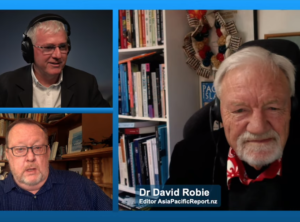
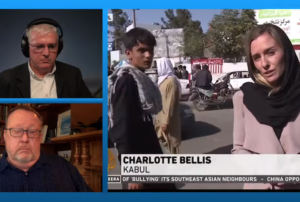
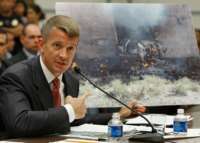
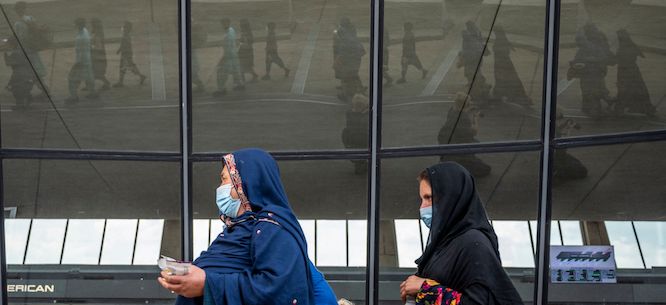
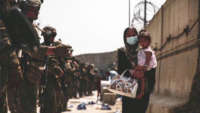
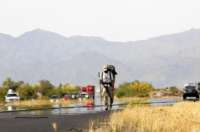

 (@DeptofDefense)
(@DeptofDefense) 
 (@richimedhurst)
(@richimedhurst) 



